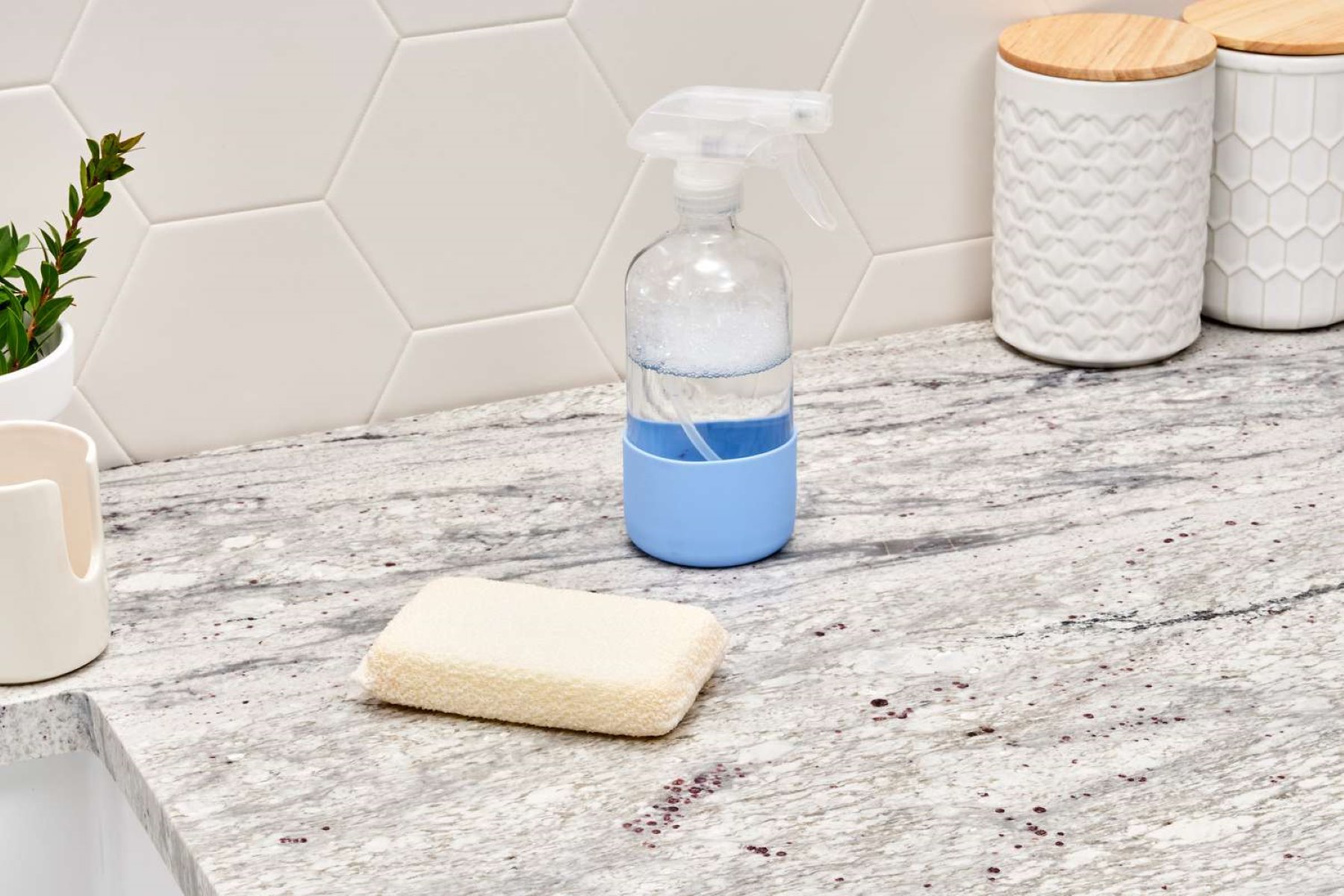

Articles
What Are Granite Countertops
Modified: October 19, 2024
Discover the beauty and durability of granite countertops with our informative articles. Learn all about the benefits, maintenance tips, and popular designs. Start building your dream kitchen today!
(Many of the links in this article redirect to a specific reviewed product. Your purchase of these products through affiliate links helps to generate commission for Storables.com, at no extra cost. Learn more)
Introduction
Granite countertops have become increasingly popular in homes and businesses due to their durability, aesthetic appeal, and versatility. These natural stone countertops offer a timeless quality that can enhance the overall look and feel of any space, whether it’s a kitchen, bathroom, or commercial setting.
Granite is an igneous rock that is formed when molten magma cools and solidifies under the earth’s surface. It is known for its unique and beautiful patterns, ranging from subtle speckles to bold veins, making each slab of granite truly one-of-a-kind. This, coupled with its durability, makes granite an ideal choice for countertops that can withstand everyday use and remain resilient for decades.
In this article, we will explore the definition of granite countertops, how they are made, the advantages and disadvantages of using granite countertops, popular uses of this material, proper maintenance tips, and the cost implications of installing granite countertops.
So, whether you are considering upgrading your kitchen or bathroom countertops or simply want to learn more about this remarkable natural stone, keep reading to discover everything you need to know about granite countertops.
Key Takeaways:
- Granite countertops offer timeless beauty, durability, and versatility, making them a luxurious and practical choice for kitchens, bathrooms, and commercial spaces.
- Proper maintenance, including regular cleaning and resealing, is essential to preserve the natural beauty and longevity of granite countertops, ensuring they remain a valuable investment.
Read more: What Are Leather Granite Countertops
Definition of Granite Countertops
Granite countertops are slabs of natural stone that are used as the surface material for kitchen and bathroom countertops. Granite is a type of igneous rock that is primarily composed of quartz, feldspar, and other minerals. It is formed deep within the earth’s crust through the slow cooling and solidification of magma over millions of years.
Granite countertops are highly regarded for their durability, strength, and natural beauty. The unique combination of minerals in granite gives it a distinct pattern and color, ranging from light hues to dark tones. This variation makes each granite slab unique, allowing homeowners and designers to choose a countertop that perfectly complements their space.
Unlike other types of countertops, such as laminate or acrylic, which are manufactured and man-made, granite countertops are cut and polished directly from large slabs of granite. This ensures that each countertop is made from a single piece of natural stone, providing a seamless and continuous surface with minimal visible joints.
The quality of granite countertops is determined by the grade of the stone and the craftsmanship involved in cutting, shaping, and finishing it. Higher-grade granite is typically more durable and has a finer texture, while lower-grade granite may have more visible imperfections or inconsistencies in color and pattern.
Overall, granite countertops offer a luxurious and sophisticated appearance that can enhance the aesthetic appeal of any space. They are a timeless choice that can withstand the test of time and elevate the overall value of a home or commercial property.
How Granite Countertops are Made
The process of transforming raw granite into a beautiful and functional countertop involves several steps of cutting, shaping, and finishing. Here is a general overview of how granite countertops are made:
- Quarrying: The first step in the production of granite countertops is quarrying. Large blocks of granite are extracted from quarries using specialized equipment and machinery. These quarries are carefully selected to ensure the quality and availability of the granite.
- Transportation: Once the granite blocks are extracted, they are transported to a processing facility. This can involve loading the blocks onto trucks or shipping them overseas, depending on the location of the quarry and the destination of the granite.
- Slab Cutting: At the processing facility, the granite blocks are cut into slabs of the desired thickness. This is typically done using diamond wire saws or large gang saws. The slabs are then carefully inspected for any visible flaws or defects.
- Edge Profiling: After the slab cutting process, the edges of the granite slabs can be profiled to achieve the desired shape. This can range from a simple eased edge to more decorative profiles, such as a bullnose or ogee.
- Surface Polishing: Once the edges are shaped, the granite slabs undergo a meticulous polishing process. This involves using abrasive polishing pads to gradually refine the surface of the stone, revealing its natural shine and smoothness.
- Sealing: To enhance the longevity of granite countertops and protect them from stains or moisture damage, a sealant is applied. The sealant fills the pores of the stone, creating a barrier that repels liquids and prevents them from penetrating the surface of the granite.
- Quality Control: Before the granite slabs are ready for installation, they undergo a thorough inspection to ensure they meet the highest standards of quality. This includes checking for any visible defects, such as cracks or chips, as well as ensuring the dimensions and thickness of the slabs are accurate.
- Installation: Once the granite slabs pass the quality control stage, they are transported to the installation site. Experienced professionals carefully measure and template the area where the countertops will be installed, ensuring a precise fit. The slabs are then secured onto the cabinets or support structures using adhesive materials.
The process of making granite countertops requires expertise and precision to achieve the desired final product. Each step is carried out with careful attention to detail, ensuring that the countertops are not only visually stunning but also durable and long-lasting.
Advantages of Granite Countertops
Granite countertops offer a wide range of advantages that make them a popular choice for homeowners and designers. Here are some of the key benefits of using granite countertops in your space:
- Durability: Granite is an incredibly durable natural stone that can withstand heavy daily use. It is resistant to scratches, heat, and stains, making it an ideal choice for busy kitchens and bathrooms. With proper care and maintenance, granite countertops can last for decades without losing their beauty or functionality.
- Natural Beauty: One of the most notable advantages of granite countertops is their natural beauty. Each slab of granite is unique, with its own intricate patterns and color variations. This natural variation adds character and depth to any space, creating a visually stunning focal point that enhances the overall aesthetic appeal.
- Low Maintenance: Granite countertops are relatively low-maintenance compared to other countertop materials. The surface is easy to clean and does not require any specialized cleaning agents. Regular wiping with a mild soap and water solution is usually sufficient to keep it looking fresh and radiant.
- Resale Value: Installing granite countertops can significantly increase the resale value of your home. The timeless beauty and durability of granite are highly sought after by potential buyers, making it a valuable selling point. Homeowners can enjoy the benefits of granite countertops while also recouping their investment when it’s time to sell.
- Versatility: Granite is a versatile material that can complement a wide range of interior design styles. Whether your space has a traditional, modern, or contemporary aesthetic, there is a granite countertop that can seamlessly integrate with the overall design scheme. It comes in various colors, finishes, and edge profiles, allowing for customization that suits your personal taste.
- Hygienic Surface: Granite is naturally resistant to bacteria and mold growth, making it a hygienic choice for food preparation areas. Its non-porous surface does not harbor germs, and with regular cleaning, it provides a safe and clean environment for your food-related activities.
- Increased Property Value: The inclusion of granite countertops in your home can significantly enhance its value and appeal to potential buyers. Granite is considered a high-end material, and its presence in kitchens and bathrooms can elevate the overall perceived value of the property.
Overall, granite countertops offer a winning combination of durability, beauty, and practicality. They provide a long-lasting investment that not only enhances the functionality of your space but also adds a touch of elegance and sophistication.
Disadvantages of Granite Countertops
While granite countertops offer numerous advantages, it is important to consider the potential drawbacks before making a decision. Here are some of the disadvantages of using granite countertops:
- Cost: Granite countertops can be quite expensive compared to other countertop materials. The cost is influenced by factors such as the rarity of the stone, the thickness of the slab, and any additional customization or edge profiles. The upfront investment required for granite countertops may not be feasible for all budgets.
- Weight: Granite is a heavy material, which means that proper support and installation are essential. The weight of the countertops may necessitate additional structural reinforcement, especially for overhangs or large kitchen islands. It is important to consult with professionals to ensure that the underlying cabinets and support structures can handle the weight of the granite.
- Maintenance: Although granite countertops are relatively low-maintenance, they do require regular care to keep them in optimal condition. It is important to clean up spills promptly and avoid using harsh or abrasive cleaners that can damage the surface. Additionally, granite countertops should be resealed every few years to maintain stain resistance.
- Porosity: While granite is generally a durable and non-porous material, it is not completely impervious to staining. Certain types of granite may be more porous than others, making them more susceptible to absorption of liquids and potential staining if spills are not cleaned up quickly. Using a sealant can help mitigate this issue to some extent.
- Limited Color Options: While many homeowners appreciate the unique patterns and variations in granite, the range of color options can be somewhat limited compared to other countertop materials. If you are seeking a specific shade or color scheme for your space, you may need to explore alternative countertop options.
- Potential for Cracks: Although granite is a durable material, it is not completely immune to cracking. Extreme temperature changes, such as placing hot objects directly on the surface or exposure to freezing temperatures, can potentially lead to thermal shock and result in cracks. However, with proper care and following recommended usage guidelines, the risk of cracks can be minimized.
It is important to weigh the advantages and disadvantages of granite countertops to determine if they are the right choice for your specific needs and circumstances. Consulting with professionals and understanding the long-term maintenance requirements can help you make an informed decision.
When cleaning granite countertops, avoid using harsh chemicals or abrasive cleaners as they can damage the surface. Instead, use a mild soap and water or a specially formulated granite cleaner to maintain its natural beauty.
Popular Uses of Granite Countertops
Granite countertops are widely used in both residential and commercial settings due to their durability, aesthetic appeal, and practical benefits. Here are some of the popular uses of granite countertops:
- Kitchens: The kitchen is one of the most common areas where granite countertops are installed. The durability of granite makes it an ideal choice for high-traffic areas, such as the kitchen, where countertops are subjected to constant use, spills, and heat from cooking. Granite countertops in the kitchen not only provide a beautiful and luxurious look but also offer a practical and functional surface for food preparation.
- Bathrooms: Granite countertops are also popular in bathrooms, where they can add a touch of elegance and sophistication. Whether used for vanity tops or as a surface around bathroom sinks, granite countertops enhance the overall aesthetic appeal of the space. The moisture-resistant properties of granite make it a suitable choice for the bathroom environment.
- Outdoor Spaces: Granite countertops are not limited to indoor applications; they are also used in outdoor spaces. Whether for an outdoor kitchen or a patio bar counter, granite countertops can withstand the elements and provide a durable and visually appealing surface for entertaining and cooking outdoors.
- Commercial Spaces: Granite countertops are a popular choice for commercial spaces, such as restaurants, hotels, and offices. The durability, resistance to scratches, and timeless beauty of granite make it an excellent option for high-traffic areas that require robust and low-maintenance surfaces.
- Bar Tops: Granite countertops are often used for bar tops, providing a stylish and durable surface for socializing and enjoying beverages. The unique patterns and color variations in granite add visual interest and create a focal point in bar and entertainment areas.
- Fireplace Surrounds: Granite countertops can also be utilized as fireplace surrounds, adding an element of luxury and elegance to the focal point of any living room or family room. The heat-resistant nature of granite makes it an ideal material for this application.
- Conference Rooms: In corporate settings, granite countertops are often used in conference rooms and executive offices. The sleek and sophisticated look of granite elevates the overall ambiance and creates a professional and impressive setting for meetings and presentations.
The versatility and wide range of applications for granite countertops have contributed to their popularity in various settings. Whether in residential kitchens, commercial spaces, or outdoor areas, granite countertops offer a practical and visually appealing solution for enhancing the functionality and aesthetics of any space.
Proper Maintenance of Granite Countertops
Proper maintenance is essential to keep granite countertops looking their best and maintaining their longevity. By following a few simple guidelines, you can ensure that your granite countertops remain in optimal condition. Here are some tips for the proper maintenance of granite countertops:
- Regular Cleaning: Clean your granite countertops regularly to remove any dirt, grime, or spills. Use a soft cloth or sponge and a mild dish soap mixed with warm water to wipe down the surface. Avoid using harsh chemicals or abrasive cleaners, as they can damage the protective coating or sealer of the granite.
- Avoid Acidic Cleaners: Avoid using acidic cleaning agents, such as vinegar, lemon juice, or ammonia-based products, as they can cause etching or dulling of the granite surface. Instead, opt for pH-neutral cleaning solutions specifically designed for natural stone surfaces.
- Blot Spills Immediately: Granite is porous to some extent, and certain liquids, such as red wine, coffee, or oils, can potentially stain the surface if left unattended. Immediately blot any spills with a clean and absorbent cloth to prevent them from penetrating the granite. Avoid wiping the spill, as this can spread it and potentially push it into the pores of the stone.
- Use Cutting Boards and Trivets: To prevent scratches or heat damage, always use cutting boards, trivets, or hot pads when placing hot cookware or utensils on the granite surface. Although granite is heat-resistant, sudden extreme temperature changes can cause thermal shock and potentially lead to cracks.
- Reapply Sealant: Granite countertops should be sealed periodically to maintain their stain resistance. The frequency of resealing depends on the type of granite and the level of usage. Consult with professionals or read the manufacturer’s recommendations to determine the appropriate timing for resealing your specific countertops.
- Avoid Using Abrasive Cleaners or Tools: Avoid using abrasive cleaning tools such as steel wool or scrub brushes with stiff bristles, as they can scratch the surface of the granite. Stick to soft cloths or non-abrasive sponges for cleaning.
- Preventive Measures: To protect your granite countertops from damage, always use coasters or placemats when placing glasses, bottles, or other objects on the surface. This will prevent scratches and potential stains from condensation or spills.
- Regular Inspections: Periodically inspect your granite countertops for any signs of damage, such as cracks or chips. If you notice any issues, contact a professional for repair to prevent further damage.
By following these maintenance tips, you can ensure that your granite countertops remain looking beautiful and functional for years to come. Regular cleaning, proper care, and preventive measures will help preserve the natural beauty and durability of the granite.
Cost of Granite Countertops
The cost of granite countertops can vary depending on several factors, including the quality of the stone, the dimensions of the countertops, the complexity of the installation, and the location. Here are some factors to consider when determining the cost of granite countertops:
- Quality of the Granite: The quality of the granite plays a significant role in determining the cost. Higher-quality granite tends to have fewer visible imperfections, more consistent patterns, and a finer texture. This higher-grade granite will typically come at a higher price point.
- Thickness of the Slab: The thickness of the granite slab can affect the cost. Thicker slabs are generally more expensive than thinner ones due to the additional materials required and the increased weight.
- Size and Shape of the Countertops: The size and shape of the countertops will impact the cost. Larger countertops or those with intricate designs may require more labor and materials, resulting in a higher overall cost.
- Edge Profiles and Customization: If you choose to have customized edge profiles or other design features, such as a waterfall edge or curved corners, they can increase the cost of the granite countertops. These customizations require additional labor and expertise.
- Installation Considerations: The cost of installation can vary depending on the complexity of the project. Factors such as the location, accessibility, and any additional modifications required for cabinetry or supports can impact the overall cost.
- Market Demand and Location: The local market demand for granite countertops can influence the cost. In areas where granite is highly sought after, the prices may be higher due to increased competition and limited availability.
As a general guideline, the cost of granite countertops can range from $50 to $200 per square foot, including material and installation. However, it’s important to note that this is just an estimate, and the final cost will depend on the specific factors mentioned above.
It’s recommended to consult with several reputable granite suppliers and installation professionals to get accurate cost estimates for your specific project. They can provide a detailed breakdown of the pricing and help you choose the right granite and options that align with your budget and design preferences.
While granite countertops may have a higher upfront cost compared to other materials, they are considered a long-term investment due to their durability and potential to increase the value of your home.
Conclusion
Granite countertops offer a winning combination of durability, natural beauty, and practicality, making them a popular choice for homeowners and designers alike. These natural stone countertops bring a touch of elegance and sophistication to any space, whether it’s a kitchen, bathroom, or commercial setting.
Throughout this article, we’ve explored the definition of granite countertops, how they are made, the advantages they offer, the potential disadvantages to consider, popular uses in various settings, proper maintenance tips, and the cost implications. Understanding these aspects can help you make an informed decision when it comes to incorporating granite countertops into your space.
Granite countertops are known for their durability, which allows them to withstand heavy daily use and remain resilient for years. Their natural beauty, with unique patterns and color variations, adds a timeless and luxurious element to any environment. While the cost of granite countertops may be higher than other options, their value is long-lasting and can enhance the overall value of your property.
Proper maintenance, including regular cleaning and resealing, is necessary to preserve the beauty and functionality of granite countertops. Care should be taken to avoid harsh cleaning agents and prevent potential damage from heat or acidic spills. By following simple maintenance guidelines, you can extend the lifespan and preserve the natural beauty of your granite countertops.
From kitchens to bathrooms, outdoor spaces to commercial settings, granite countertops have found their place due to their versatility and ability to enhance the visual appeal of any area. Whether you are remodeling your home or designing a new space, considering granite countertops can elevate the overall aesthetic and offer a durable, long-lasting solution.
In conclusion, granite countertops are more than just a functional surface – they are a statement of style and quality. Their natural beauty, durability, and practical benefits make them a worthwhile investment. By making an informed decision, properly maintaining them, and enjoying their timeless elegance, you can add a touch of luxury and sophistication to your space with granite countertops.
Frequently Asked Questions about What Are Granite Countertops
Was this page helpful?
At Storables.com, we guarantee accurate and reliable information. Our content, validated by Expert Board Contributors, is crafted following stringent Editorial Policies. We're committed to providing you with well-researched, expert-backed insights for all your informational needs.
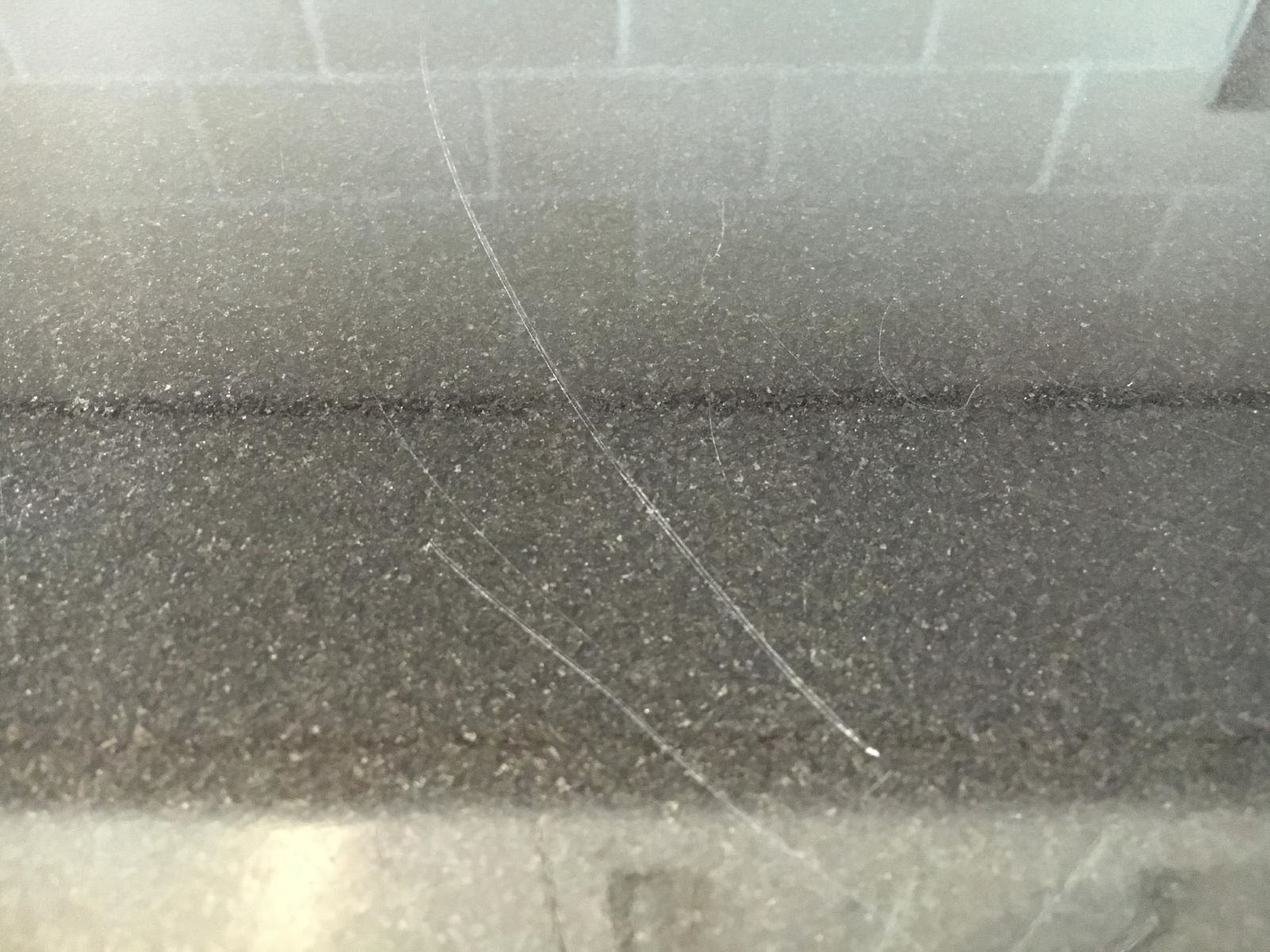
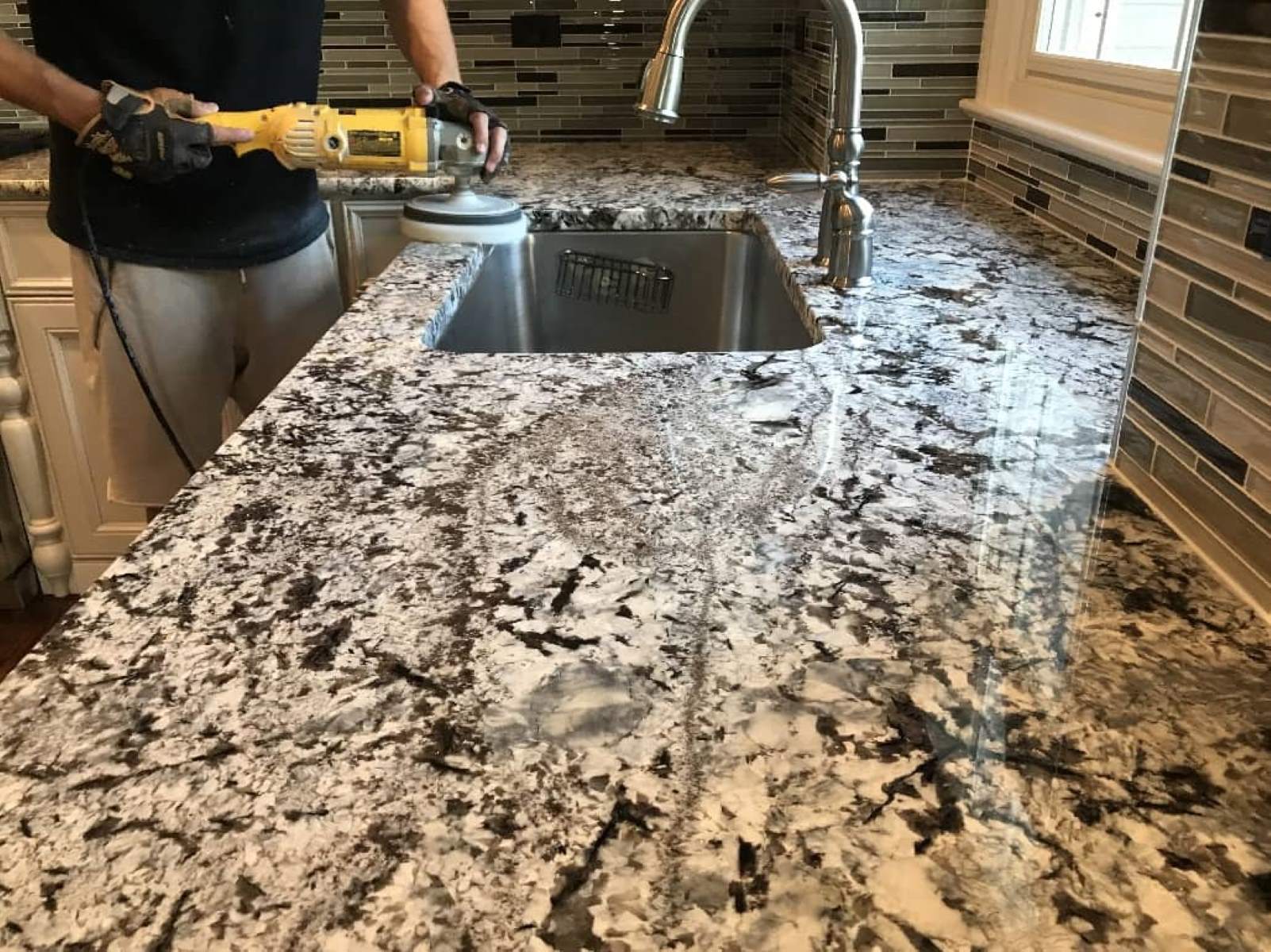
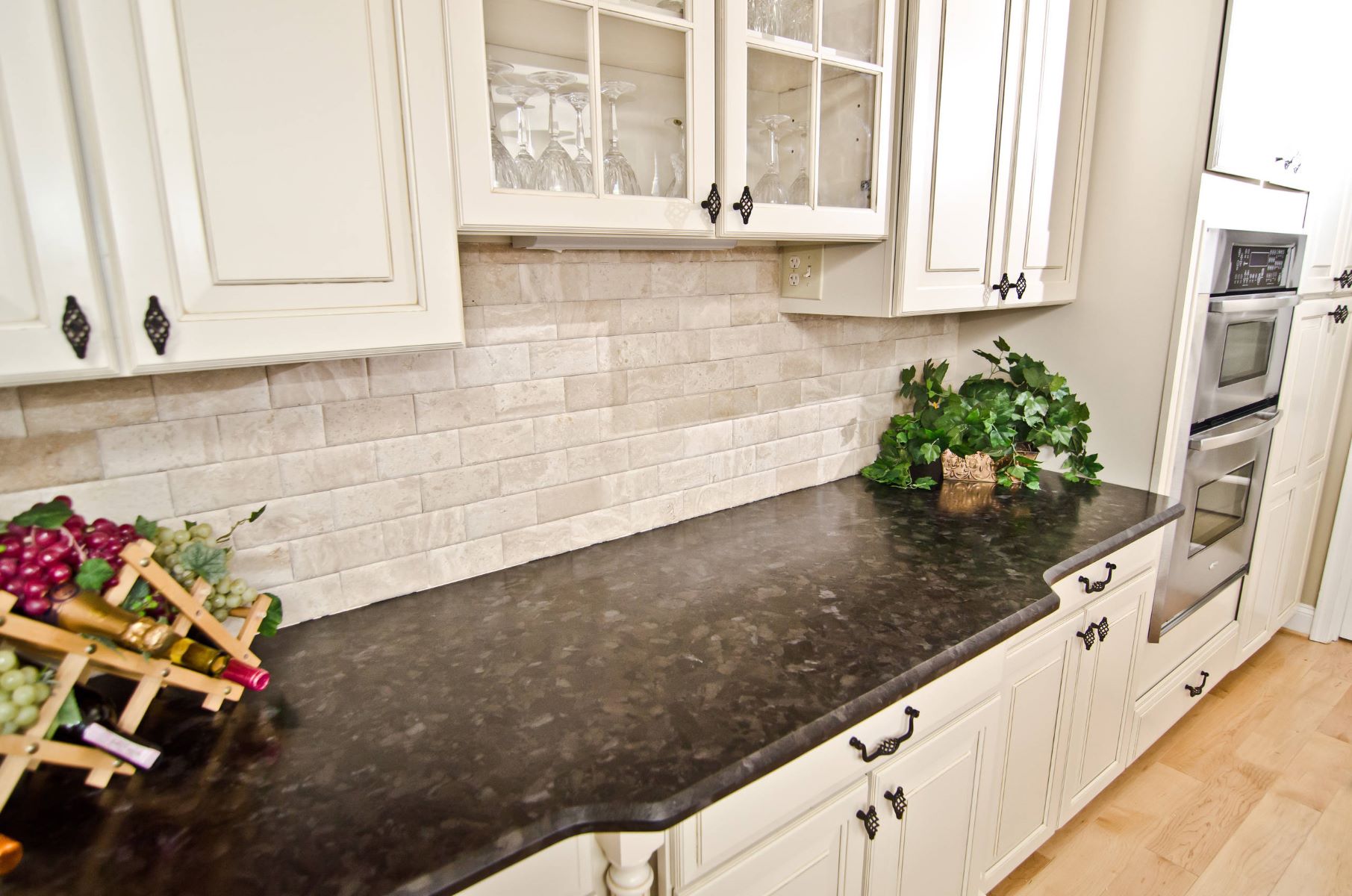
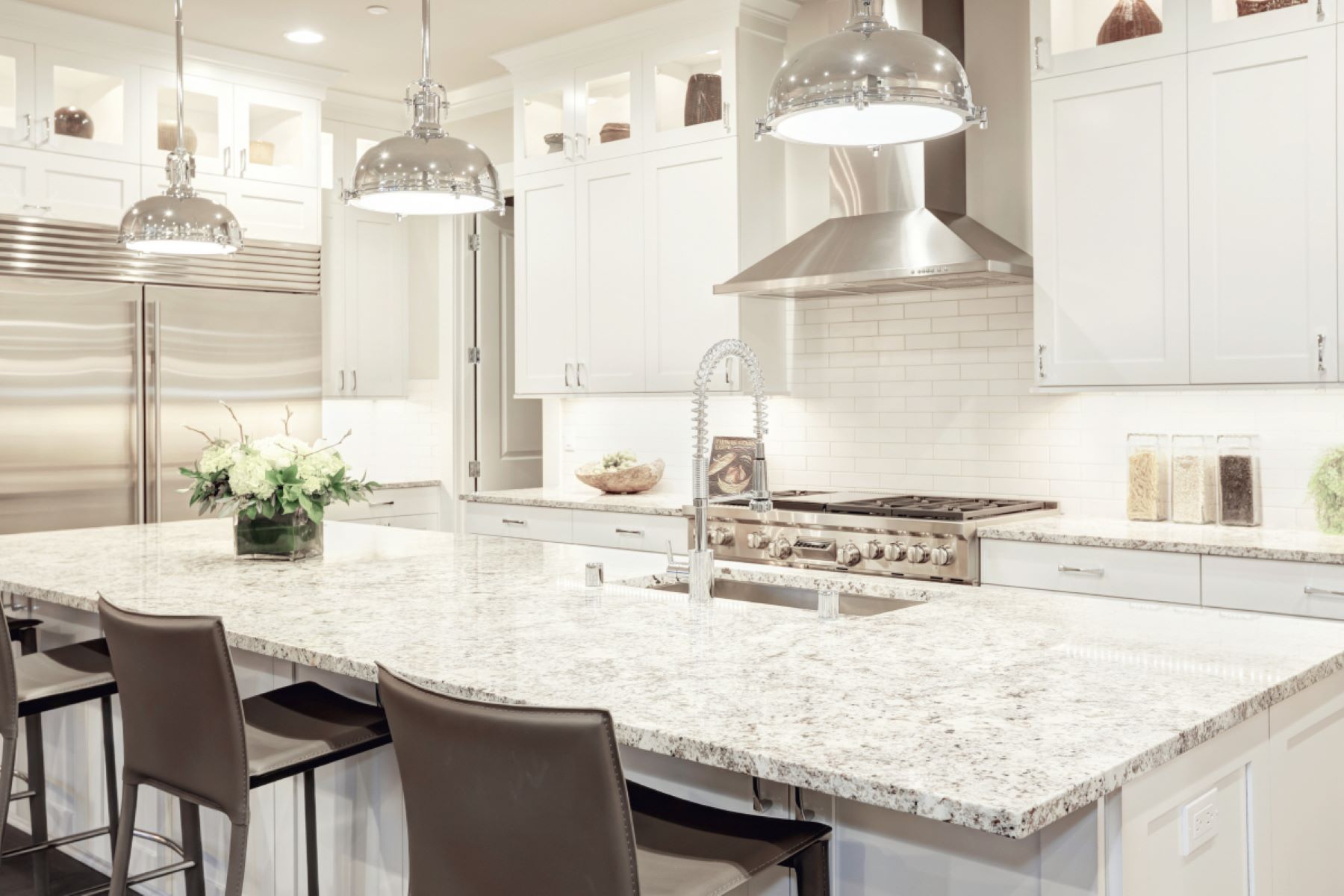
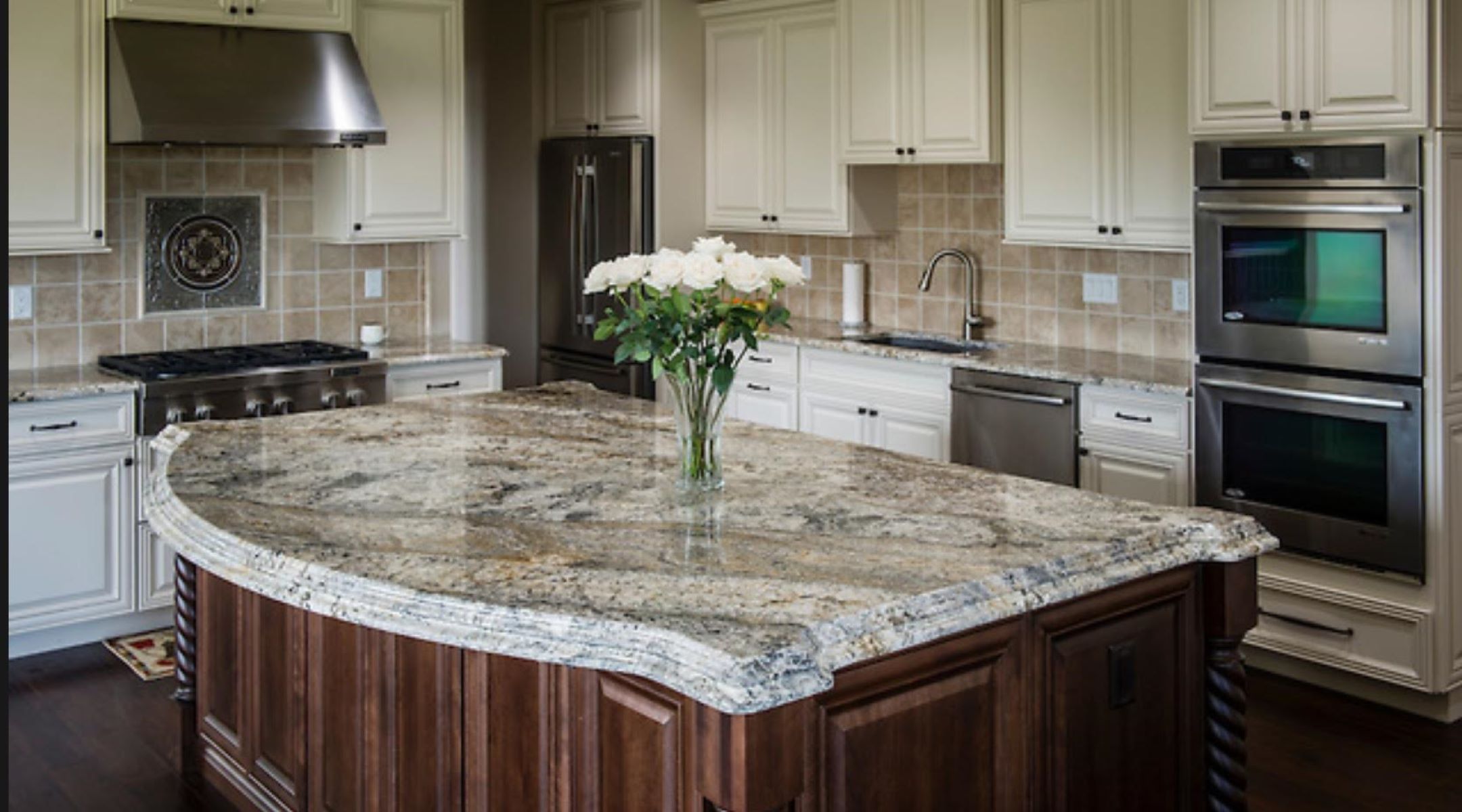
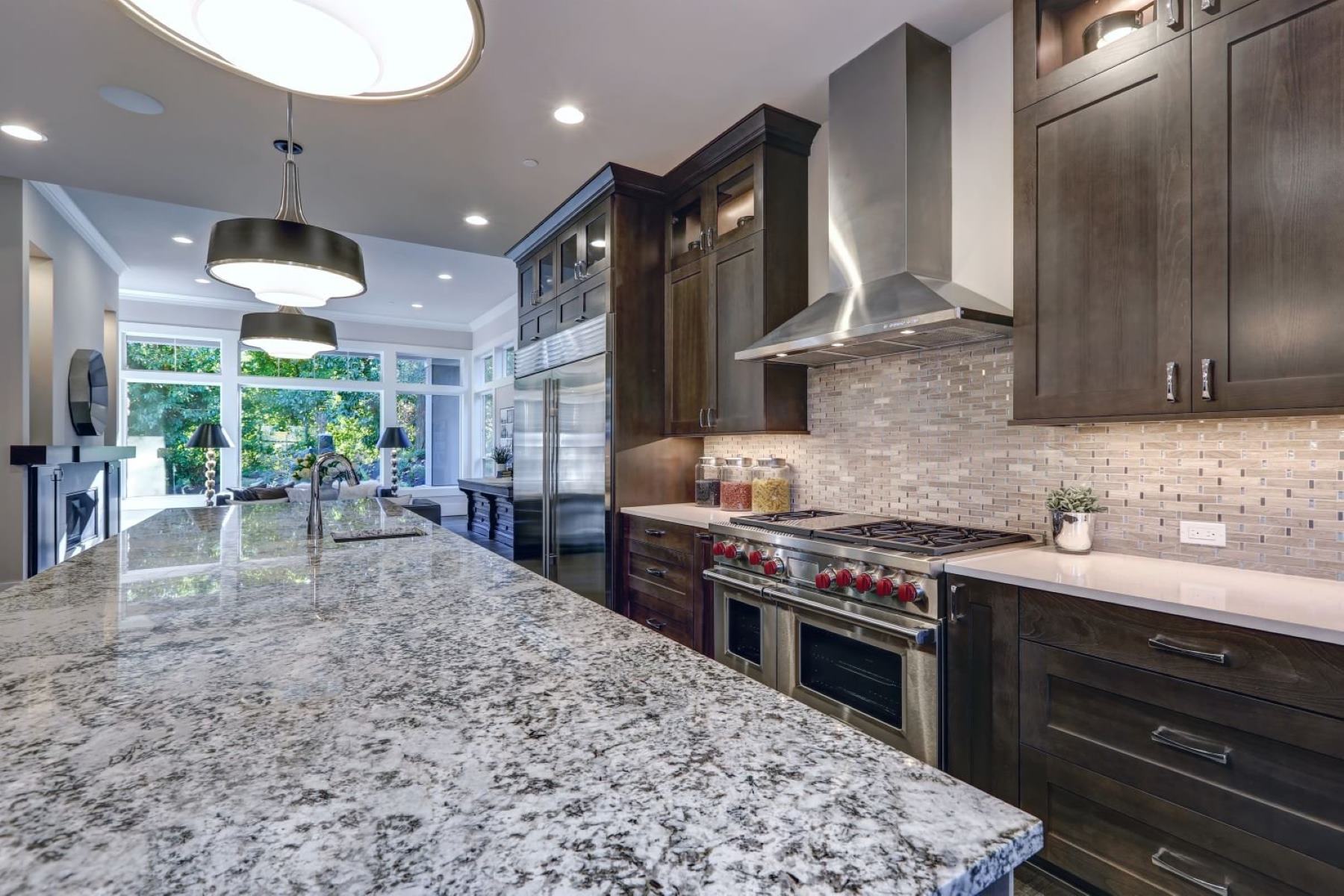
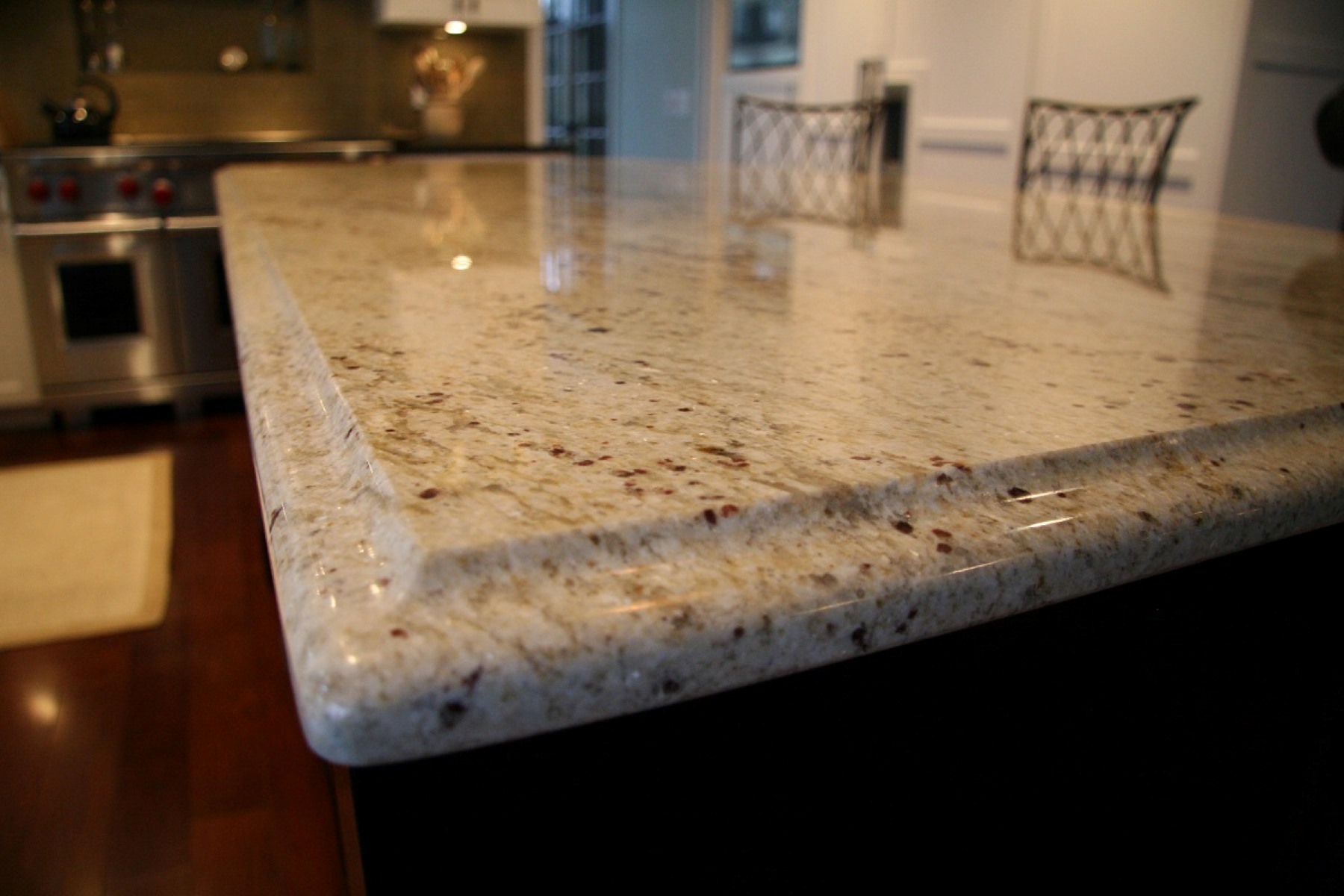

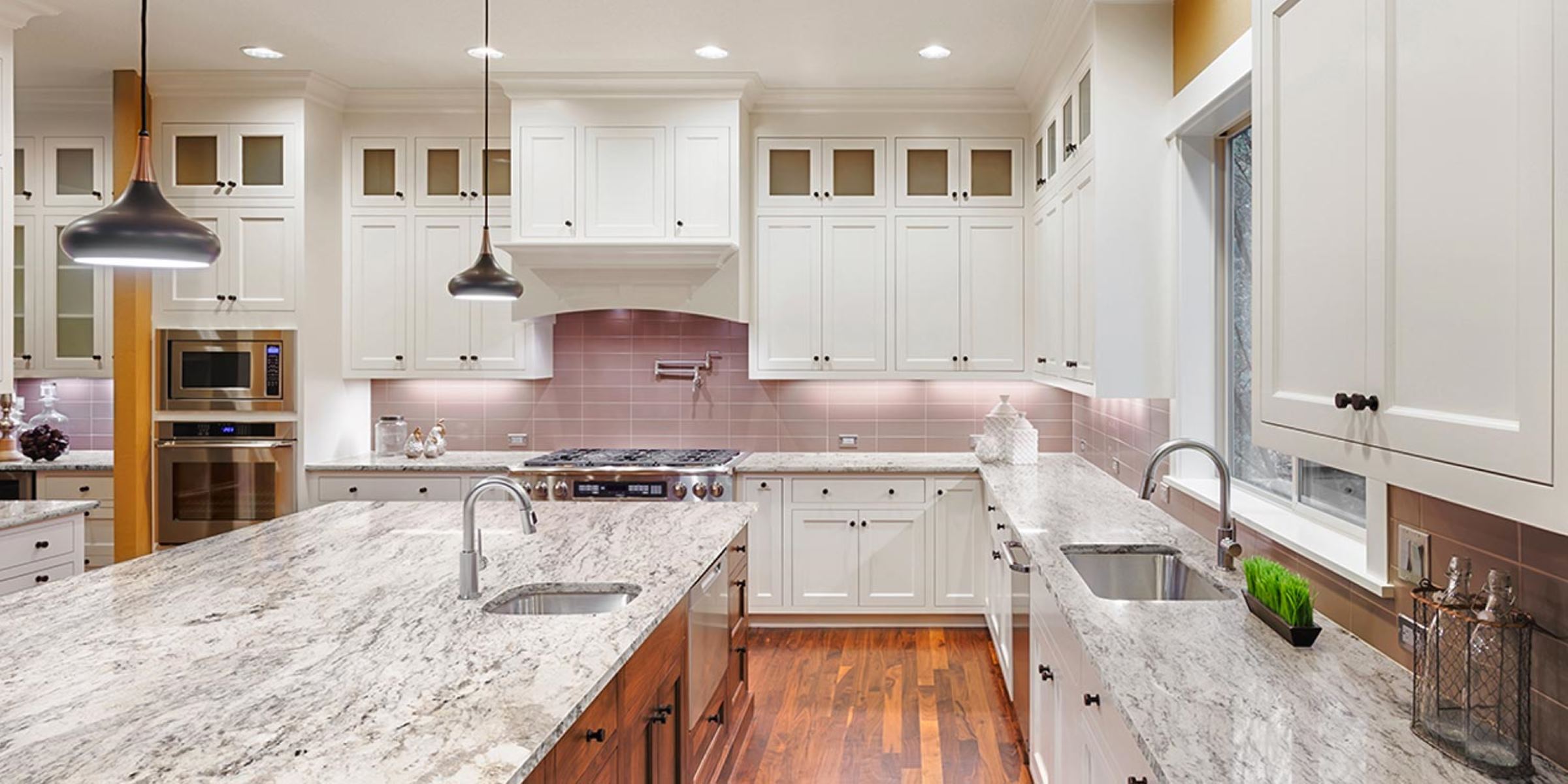
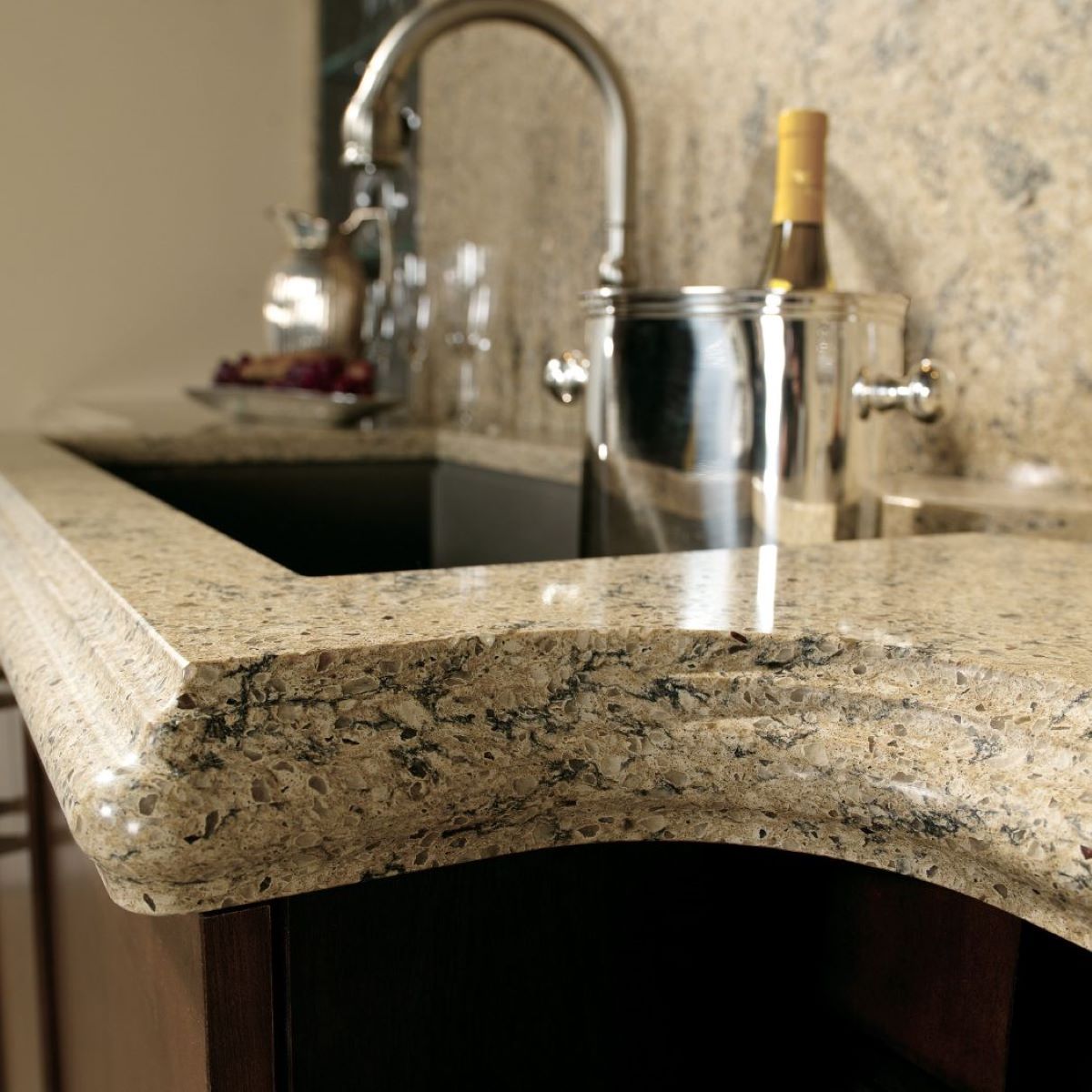
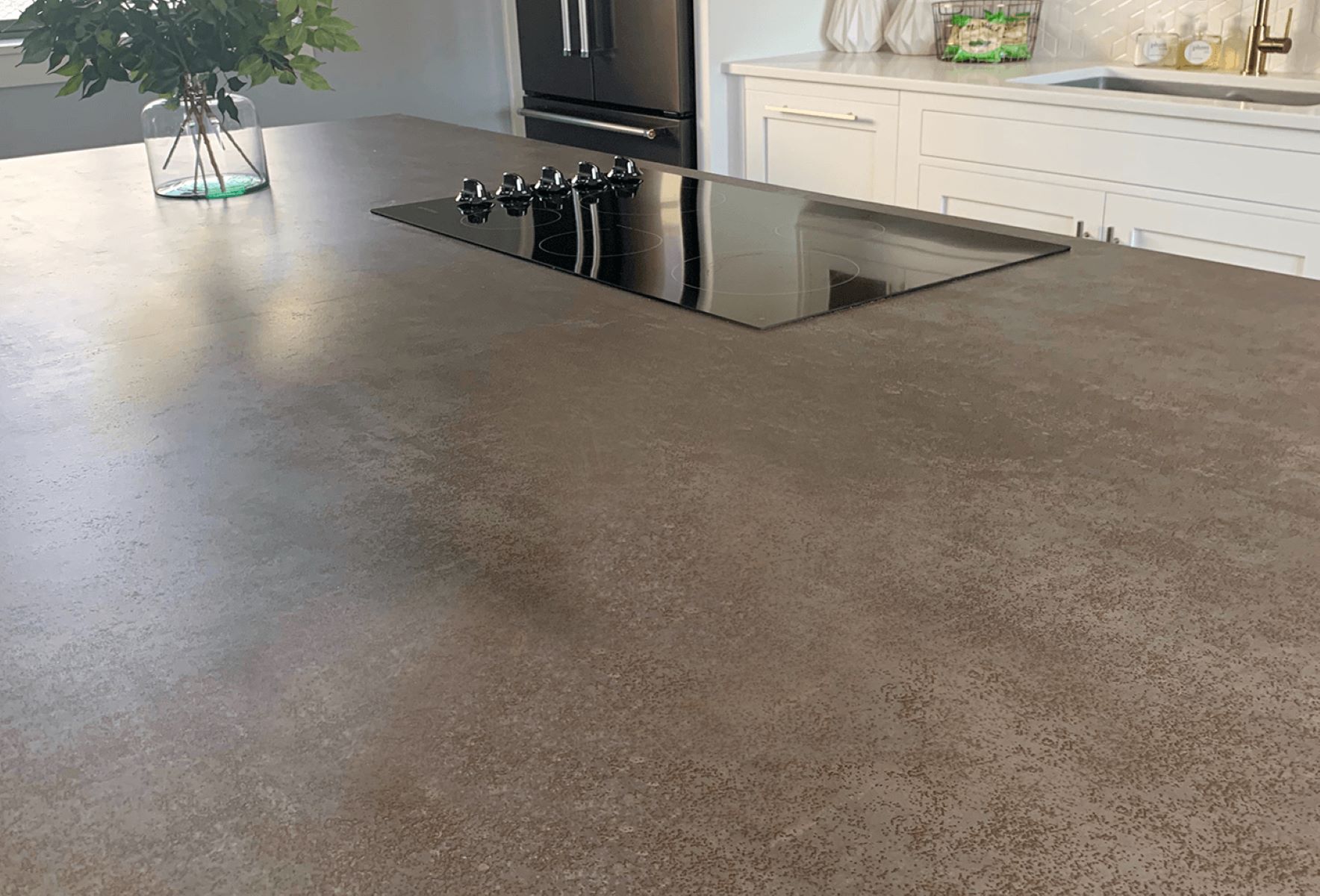
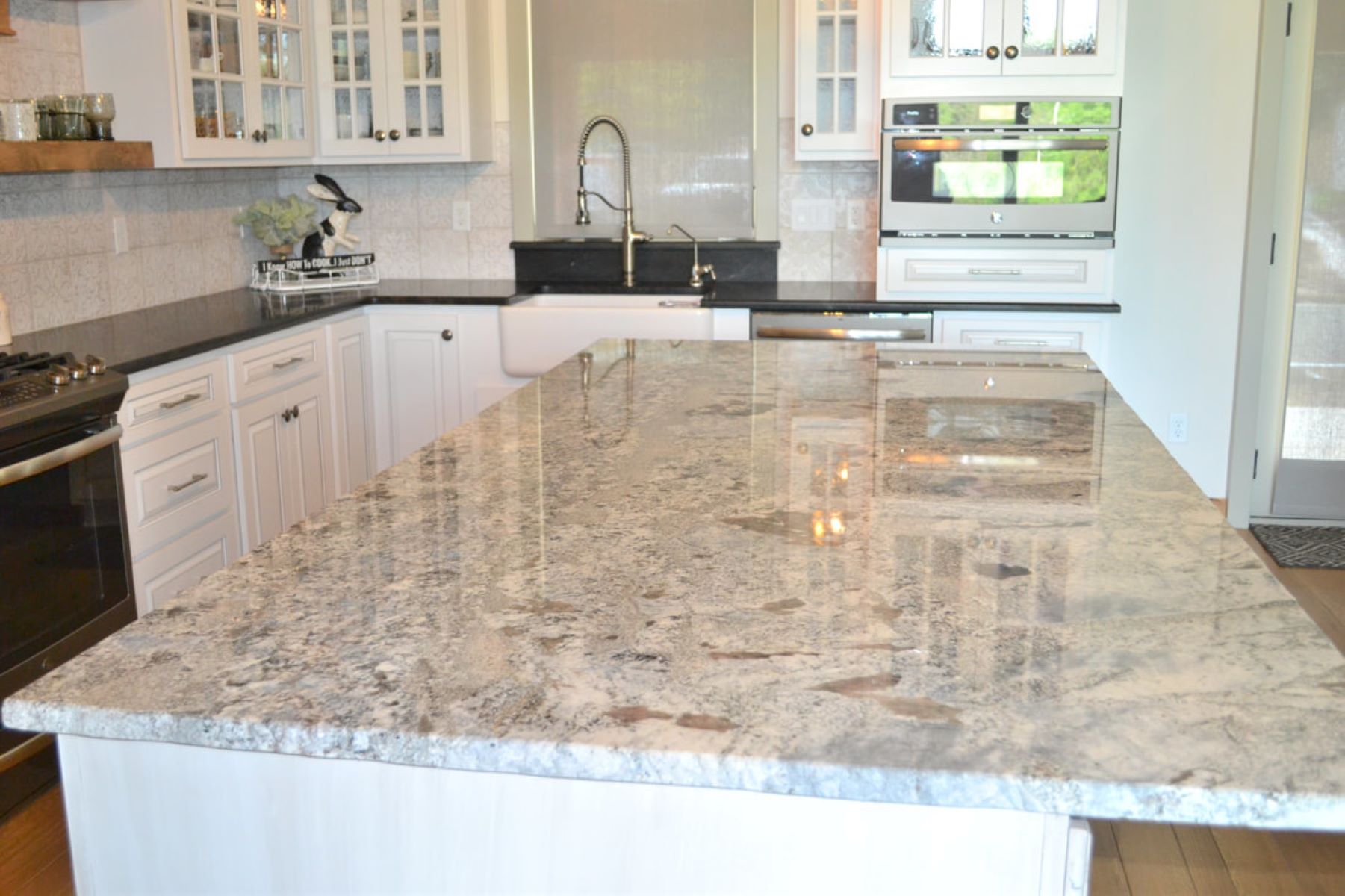
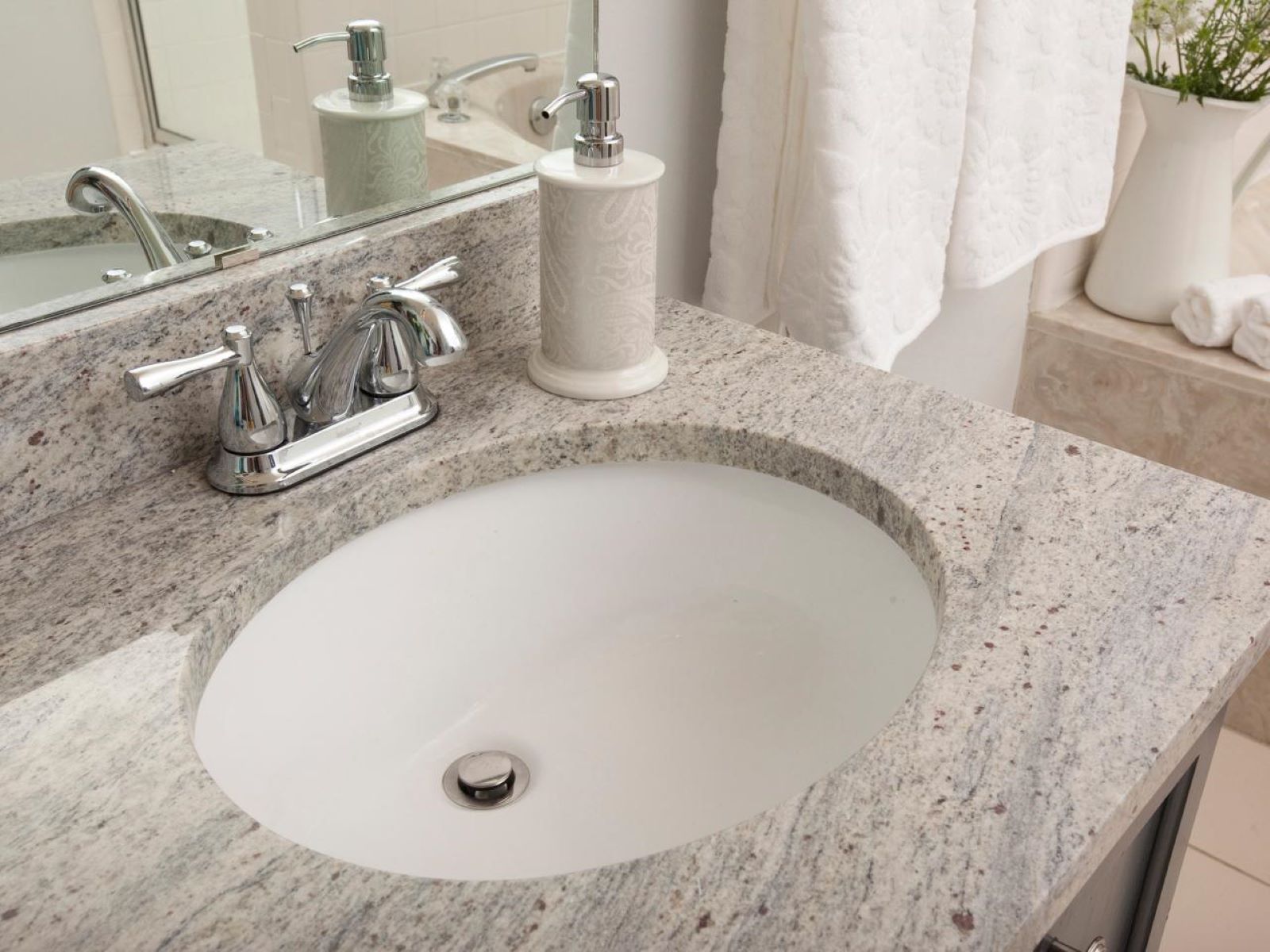
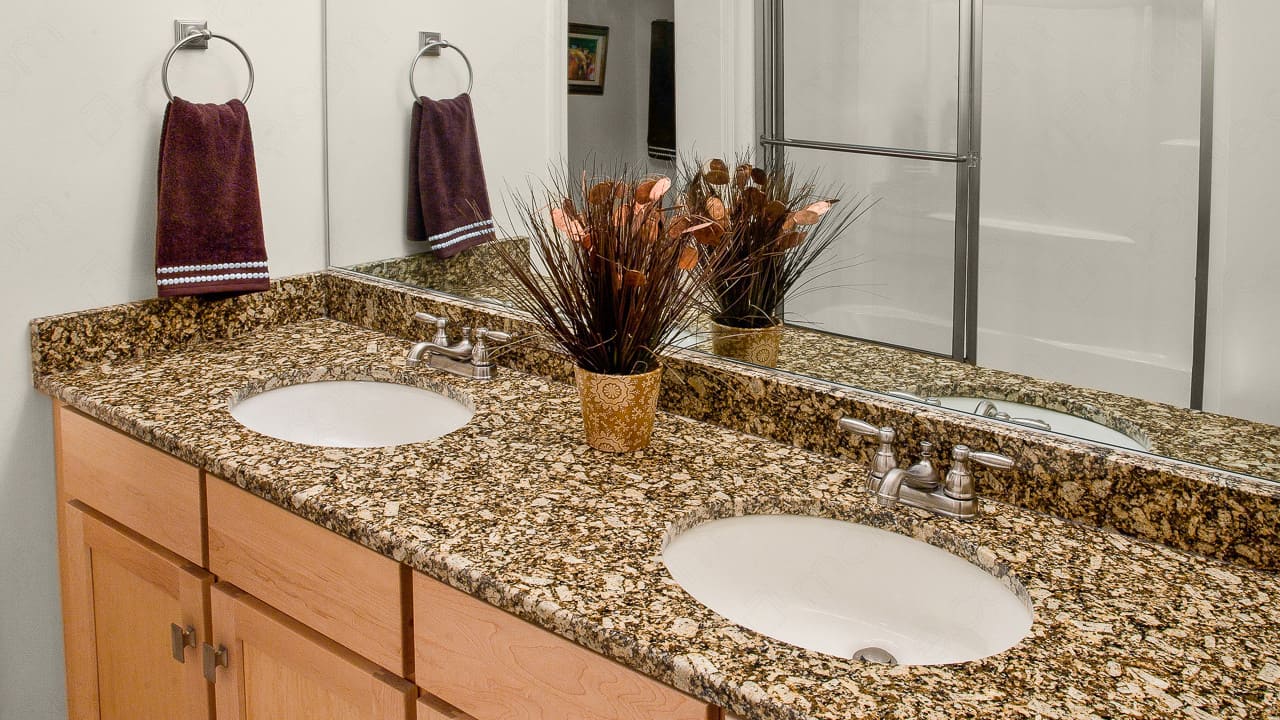

0 thoughts on “What Are Granite Countertops”